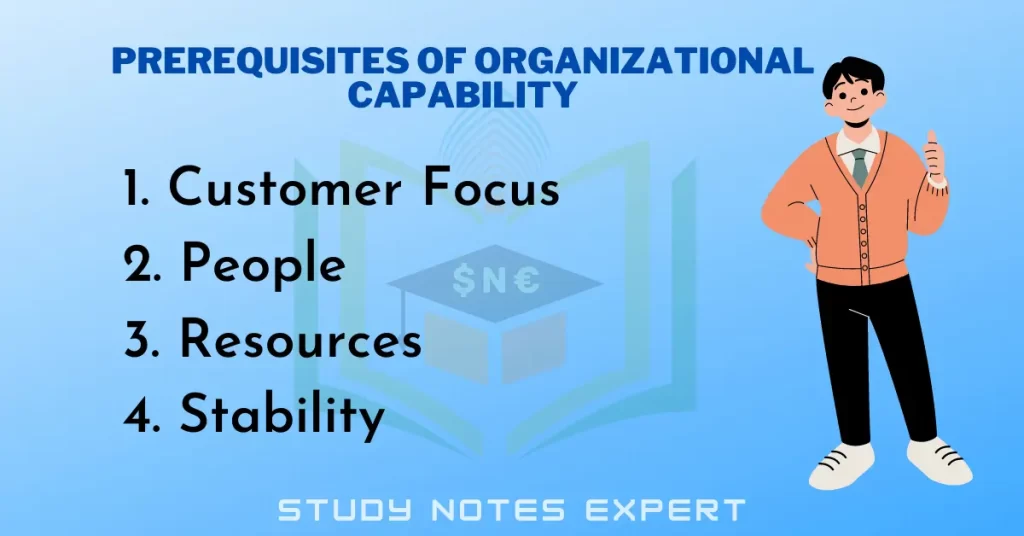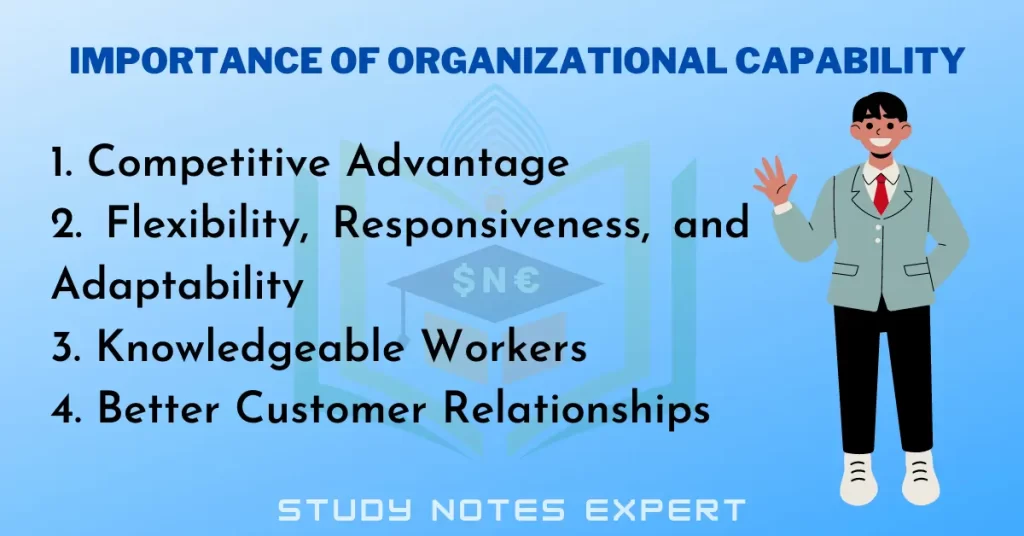Before planning the capability profile of a firm, a strategist needs to know these prerequisites of organizational capability. Also, in the further section, you will learn the importance of organizational capability.
Prerequisites of Organizational Capability

1. Customer Focus
A capability profile should contain data about the customers and their potential needs to help evaluate the potential suppliers or business partners. The customer should know the current capabilities of the company as well as its plans. Customers also want to know about the firm’s market knowledge and technical expertise to provide quality products that meet their requirements. Customers should feel confident in the firm’s management skills and financial soundness to meet their future and current needs.
2. People
Knowledge and skills are other essential element of organizational ability. It includes remarkable achievements such as participation in industry, excellence awards, and leadership efforts in a particular field. Many organizations, particularly those in IT, give detailed accounts of their business networks to enhance and increase their capabilities.
3. Resources
An organization can add many other assets to an organization’s capabilities, including copyrights, goods, and production facilities. These assets are crucial in distinguishing a firm from its competition, mainly when there is little difference. The firm must tailor-make its assets to meet the requirements of customers.
A customer trading in multiple countries may look for a supplier that has a global supply network. A client who needs flexible manufacturing capabilities will also be looking for someone with the ability to meet their challenging delivery requirements.
4. Stability
One of the essential characteristics of organizational capability is stability. Firms can instill confidence in customers by demonstrating that their management system works well and is stable. Managers present the firm’s economic viability by showing its growth and successes. The firm’s financial growth clearly indicates that it is a reliable distributor capable of investing in new amenities to provide better customer service.
Importance of Organizational Capability

Organizational ability refers to the power of a firm to efficiently manage its resources to gain a competitive advantage over other market players. A manager should not emphasize organizational capabilities over the firm’s business ability to meet customers’ needs.
The firm must be distinctive to avoid any duplication by competitors. Organizational capabilities are the things that make a firm successful and help it grow its business. An organization’s competitive advantage is its ability to stand out in the marketplace. Small entrepreneurs can achieve a competitive edge in the market by improving their organizational capabilities.
These points will help you understand the importance of organizational ability:
1. Competitive Advantage
A firm constantly seeking to improve its existing capabilities is more competitive than other market players. Organizational capabilities allow the firm to gain a competitive edge in the market in expertise, licenses, novel designing, etc. It shows the importance of organizational capability. These are just a few capabilities that can help a company achieve a competitive advantage.
2. Flexibility, Responsiveness, and Adaptability
A firm’s ability to respond to changing customer demands is called its responsiveness. Expert and experienced employees are the organizational capabilities that enable the firm to respond to changing customer demands and adapt to changing business situations.
3. Knowledgeable Workers
A skilled workforce is an importance of organizational capability that allows the company to remain competitive in the market. Employees’ experience and knowledge can help the company achieve its goals. Training programs, education assistance, and effective recruitment and selection programs are just a few of the organizational capabilities that can provide skilled employees. To maintain organizational capabilities, the company must provide resources to help employees improve their skills.
4. Better Customer Relationships
Building good customer relationships is key to ensuring the company’s continued growth. It helps to achieve a competitive advantage in the market. The firm’s ability to establish and maintain customer relationships is an importance of organizational capability that determines future sales, loyalty, and goodwill. The future success and growth of the company will depend on its ability to keep its existing relationships with employees and establish new connections with prospective customers.

